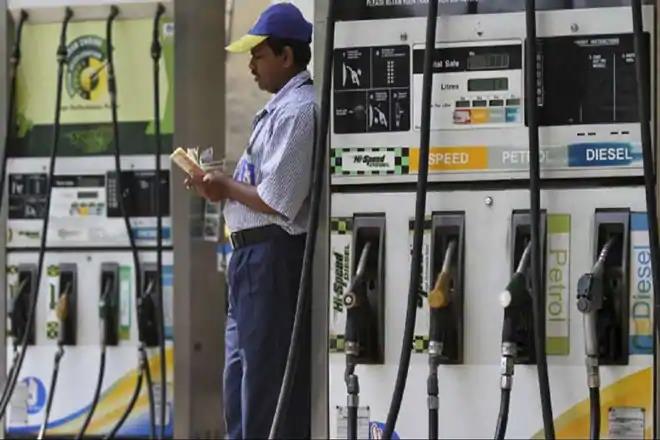New Delhi: Consumers in India are unlikely to be overburdened with high retail price of auto fuels – petrol and diesel – following a spike in international crude prices that rose 19 per cent on Monday.
Global oil prices are on the boil again in the aftermath of the largest ever-disruption in crude production post drone attacks in Saudi Aramco’s two of the largest oil processing facilities.
Sources said that with three states – Maharashtra, Jharkhand and Haryana going to the polls next month, the government does not want to risk higher auto fuel prices and face consumer outrage. Frequent increases in retail price of petrol and diesel is considered suicidal as it can have an effect for the ruling BJP during the elections.
Therefore, it seems to have tempered its policy of market-determined retail pricing of petroleum products that were hitherto being revised on a daily basis based on international prices.
Sources said that state-owned oil marketing companies (OMCs) have been told by senior government functionaries to keep the daily price movement of the two petroleum products in check between now and the end of elections. This could be done by absorbing a portion of the price rise if the increase is consistent in view of global factors, especially disruption of supplies post drone attacks.
In light of the sharp rise in international crude oil prices, Indian oil marketing companies (OMCs) may increase the retail price of diesel and gasoline by Rs 5 to Rs 6 per litre in the following fortnight. However, even if the disruption is long drawn, petrol and diesel retail prices may move up slowly minimising the impact on consumers. OMCs moved similarly during the general elections in April-May this year when retail prices did not change on several days even though there was a need for an increase.
Sources said that though OMCs have not been issued any written order on retail prices but the government being its largest shareholder has exercised its control to make sure that consumers are prevented from paying abnormally higher prices.
“There is no question that even under daily price revision mechanism, OMCs have to occasionally oblige and follow instructions coming from the government. This seems true now given how cleverly marketing companies are absorbing marginal losses while keeping petrol and diesel prices insulated from global developments,” said a sector analyst who did not wish to be named.
Petroleum minister Dharmendra Pradhan played down Tuesday the impact of rising oil prices on the country post Saudi disruptions. He also indicated that India may increase oil imports from Russia if the need arose.
Data from state-owned oil companies give enough indication to prove that a veiled price control has already made its comeback and petrol and diesel prices have been left un-revised for days in succession. Between June and now, there have been several instances when retail prices of petrol, diesel have been left unchanged by OMCs. Oil sector experts said this is impossible given the oil prices changes by the minute and hour and there is no question it would remain static for days.
Last October while announcing an excise duty cut on petrol and diesel to tame a spike, the government had also asked OMCs to absorb a rupees one per litre hike. It had an adverse effect on the OMCs. Indian Oil Company (IOC) took a hit of 19 per cent on its net profit, while Hindustan Petroleum about 27 per cent and Bharat Petroleum about 26 per cent.
IANS
